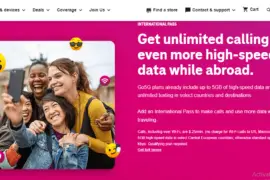Last Updated on October 28, 2022 by Rose Morah
It’s normal to have your bank account locked when traveling abroad.
But it can even be more frustrating if it’s locked on a weekend. You’re forced to wait until the next business day to have the account unlocked.
But why would a bank freeze your account?
Your account may be frozen due to:
- Suspicious deposit of large amounts of money
- Receiving suspicious payments from different countries
- Unpaid debts to creditors
- Unpaid debts to the government ( for instance student loans or unpaid taxes).
- Other irregularities.
How to deal with a frozen bank account while abroad
Call your bank
Immediately you realize that your account is frozen, you need to call your bank’s emergency assistance or helpline first thing.
It’s also worth noting that you would also have trouble accessing your online/mobile banking if the bank locked your account due to suspicious activities.
But, what do I do if I am also having trouble getting in touch with the bank?
- Call via the 24/7 lost, stolen, or damaged line. (This would help especially if you are calling during out-of-office hours). But be sure to check your phone connection and add the international dialing code ahead of the number when calling the bank.
- Email the bank. Although this option does not guarantee a fast response, it is still a good alternative if you can’t get the bank via phone call.
Related: Clever Ways To Keep Your Money Safe When Traveling (Money Hiding Hacks).
How long would it take to have your bank account unfrozen?
If your account was frozen due to suspected fraud, it should be unfrozen immediately after verifying your identity.
However, it may take longer if it was frozen due to other reasons.
What to do if you are completely stranded abroad due to a frozen bank account
It’s no doubt you’ll be stressed out should you find yourself in this situation.
If you completely don’t have any cash, then you could call a friend or a loved one and have them send you some money.
But the problem is,… you don’t have an account.
Let’s remedy that, shall we?
How to receive money when you don’t have a bank account
1. Western Union
Western Union is available in over 500,000 locations worldwide.
If someone sends you cash through Western Union, all you need to do is avail yourself for collection at the nearest Western Union office.
Advantages of using Western union include:
- Great for sending and receiving emergency cash
You can expect to receive money in a matter of minutes after the sender has successfully wired the money. So you can either go pick it up or choose a home delivery service, if available at your destination.
- Reliable
No problems arise when transferring money.
The main disadvantage of using Western Union is:
- Be prepared to pay more for the service
You may be charged more for sending and picking up the cash.
2. Google Wallet
You can use Google Pay to send and receive money by email address or phone number at no fee.
However, this is only available to US citizens.
Find more about Google Pay here.
3. Venmo
Venmo is an online service that allows registered users to send and receive money without a bank account.
All you need to do is sign up for free and then have your friend or loved one send you money.
This service also supports U.S citizens only.
4. PayPal
You can easily create a PayPal account for free within minutes.
However, one may still argue that it’s impossible to withdraw funds when your bank account is frozen.
Well, you can withdraw your PayPal balance without a bank account in the following ways:
i) If you are traveling to a country that supports mobile money
PayPal allows users to send funds directly to mobile money easily.
All you need is to purchase a local SIM card.
Check our previous article on how to choose the best SIM card when traveling abroad.
Alternatively, you could talk to a trusted local who already has a verified PayPal account and withdraw through their mobile money account.
A good example of mobile money is Mpesa. The Mpesa service is available in the following countries and continents.
| Continent | Country |
| Africa | Kenya, Tanzania, Egypt, The Democratic Republic of Congo, Ghana, Lesotho, and Mozambique |
| Eastern Europe | Romania |
ii) When you need to pay your bills
Some hotels and restaurants will allow you to pay via PayPal. This can be a great alternative before your bank account is unfrozen.
Other ways of dealing with a frozen bank account
Most banks send text messages asking you to confirm or deny a transaction. You, therefore, need to check your phone for any messages when doing your transactions.
How to prevent your account from being frozen
The following are best practices to help you avoid frozen bank accounts and the frustrations that come with that, especially when traveling abroad.
- Notify your bank before traveling
Always notify the bank before traveling abroad. The bank will then put a temporary travel notice on your account.
This prevents the flagging of your international transfers or purchases by the bank as suspicious.
Some banks allow their customers to notify them online via travel alerts or through the bank’s mobile apps even after leaving the country.
Others have more advanced technology that involves chip card security. So you don’t always have to notify them about your travel plans.
Just find out how to communicate with your bank and notify them before traveling.
- Link your account to more than one card
This would without a doubt help in case of any cybersecurity threats or bad experiences, such as ATM “eating.” In any case, if one card is affected, you’ll still be able to use the other cards, even after canceling it.
- Open more than one bank account
You can open several different accounts and then deposit a limited amount of funds. You can then use any of them when traveling instead of having only one main account. This way if one account is locked, you will still have access to the other accounts.
- Consider applying for a travel money card
When applying for a travel card, a good rule of thumb is to research well and choose a travel card that allows you to take advantage of exchange rates to avoid unnecessary charges.
If you are concerned about currency fluctuations, consider travel cards that lock in the exchange rate whenever you load funds.
On the bright side, this will protect you against negative currency movements. On the downside, this will restrict you from benefiting from the exchange rates that can increase your balance.
Once you find your best traveling card, load it with some foreign currency before traveling.
- Get travel insurance
Travel insurance helps cover you in case of stolen or lost credit cards.
And additionally, it also covers your credit card against fraud (such as card skimming), canceled trips, and even medical emergencies.




